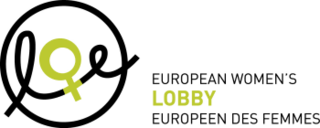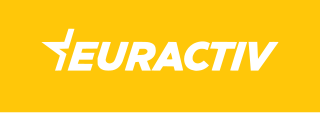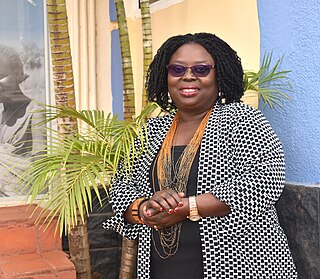
The Union of Greens and Farmers is an agrarian political alliance in Latvia. It is made up of the Latvian Farmers' Union, Latvian Social Democratic Workers' Party, and For Latvia and Ventspils.

United Nations Security Council Resolution 1325 (S/RES/1325), on women, peace, and security, was adopted unanimously by the UN Security Council on 31 October 2000, after recalling resolutions 1261 (1999), 1265 (1999), 1296 (2000), and 1314 (2000). The resolution acknowledged the disproportionate and unique impact of armed conflict on women and girls. It calls for the adoption of a gender perspective to consider the special needs of women and girls during conflict, repatriation and resettlement, rehabilitation, reintegration, and post-conflict reconstruction.

The European Institute for Gender Equality (EIGE) is the European Union's agency for gender equality.
Politico, known originally as The Politico, is an American political digital newspaper company. Founded by American banker and media executive Robert Allbritton in 2007, it covers politics and policy in the United States and internationally, with publications dedicated to politics in the U.S., European Union, United Kingdom, and Canada, among others. Primarily providing distributed news, analysis and opinion online, it also produces printed newspapers, radio, and podcasts. Its coverage focuses on topics such as the federal government, lobbying and the media.

The Corporate Europe Observatory (CEO) is a non-profit research and campaign group whose declared aim is to "expose any effects of corporate lobbying on EU policy making". It is based in Brussels.

Alber & Geiger is a political lobbying agency and a European-based government relations law firm, lobbying EU institutions in Brussels. The firm has also a litigation practice at the European Court of Justice and has offices in Brussels and Berlin.

The European Women's Lobby (EWL) is the largest umbrella organization of women's non-governmental associations in Europe working for the interests of women and girls in all their diversity and gender equality in all areas of life.
There are several social issues in Armenia including poverty, high unemployment rates, corruption, and inadequate public services.

Helena Dalli is a Maltese politician serving as European Commissioner for Equality since 1 December 2019. She is a member of the Labour Party.

Women in Belgium are European women who live in or are from Belgium. Generation after generation, Belgian women are able to close the "occupational gender gap". In younger generations, this is due to the increasing availability of "part-time jobs in services" for women. In 1999, the average earnings of a Belgian woman was 91 percent of the salary of a Belgian man. When not doing part-time jobs, Belgian women still "do more of the domestic work", depending on the agreement between female and male partners.
The Gender Equality Index is a tool to measure the progress of gender equality in several areas of economic and social life in the EU and its Member States, developed by the European Institute for Gender Equality (EIGE). These areas are summarised into a hierarchical structure of domains and sub-domains. The Index consists of 31 indicators and ranges from 1 to 100, with 100 representing a gender-equal society. The aim of the Index is to support evidence-based and informed decision-making in the EU and to track progress and setbacks in gender equality since 2005. Additionally, it helps to understand where improvements are most needed and thus supports policymakers in designing more effective gender equality measures.

Malin Anna Björk is a Member of the European Parliament (MEP) of the Swedish Left Party and The Left (GUE/NGL). She is a full member of the parliament's Committee on Environment, Public Health and Food Safety (ENVI) and a substitute member of the Committee on Civil Liberties, Justice and Home Affairs (LIBE).

Theresa Reintke is a German politician who has been serving as a member of the European Parliament from Germany since 2014. She is co-president of the Greens/EFA Group in the European Parliament. She is a member of the Alliance 90/The Greens, part of The Greens–European Free Alliance. From 2011 to 2013 she was the spokesperson of the Federation of Young European Greens.

Euractiv is a European news website focused on EU policies, founded in 1999 by the French media publisher Christophe Leclercq. Its headquarters and central editorial staff are located in Brussels, with other offices in Paris and Berlin. Its content is produced by about 50 journalists staffed in Belgium, Bulgaria, the Czech Republic, France, Germany, Greece, Italy, Poland, Romania and Slovakia.
Domestic violence in Turkey is an ongoing and increasing problem in the country. In 2013 a Hurriyet Daily News poll found that 34% of Turkish men think violence against women is occasionally necessary, and 28% say that violence can be used against women. According to data collected by We Will Stop Femicide Platform (KCDP) in Turkey, the number of femicides had increased from 80 to 280 between the years of 2008 and 2021. In the same report it is stated that 195 of the femicides that took place in 2021 were committed by the woman's spouse, ex-spouse, partner or ex-partner, and 46 of the femicides were committed by a family member or relative.

Sylwia Iwona Spurek is a Polish lawyer, as well as a social and political activist. A doctor of law, lecturer, solicitor, and legislator, she specialises in criminal law. Spurek is a member of the Polish Society of Anti-Discrimination Law and the Polish Legislative Society. From 2019 to 2024 she served as a Member of the European Parliament.
EU Scream is a podcast based in Brussels. EU Scream was set up in 2018 by Tom Brookes from the European Climate Foundation and by James Kanter from The New York Times. James Kanter had left the New York Times before the launch of EU Scream.
Feminist foreign policy, or feminist diplomacy, is a strategy integrated into the policies and practices of a state to promote gender equality, and to help improve women's access to resources, basic human rights, and political participation. It can often be bucketed into three categories: rights, resources, and representation. The concept was first coined and integrated into governmental policy by Margot Wallström, former Swedish Foreign Affairs Minister. The objectives of feminist foreign policy include :

Rita Aciro is a Ugandan human rights defender and Executive Director for Uganda Women's Network (UWONET). She was the recipient of the 2021 European Union Human Rights Defenders Award.
The Directive on combating violence against women and domestic violence is an EU Directive proposal by the European Commission tabled on 8 March 2022.













